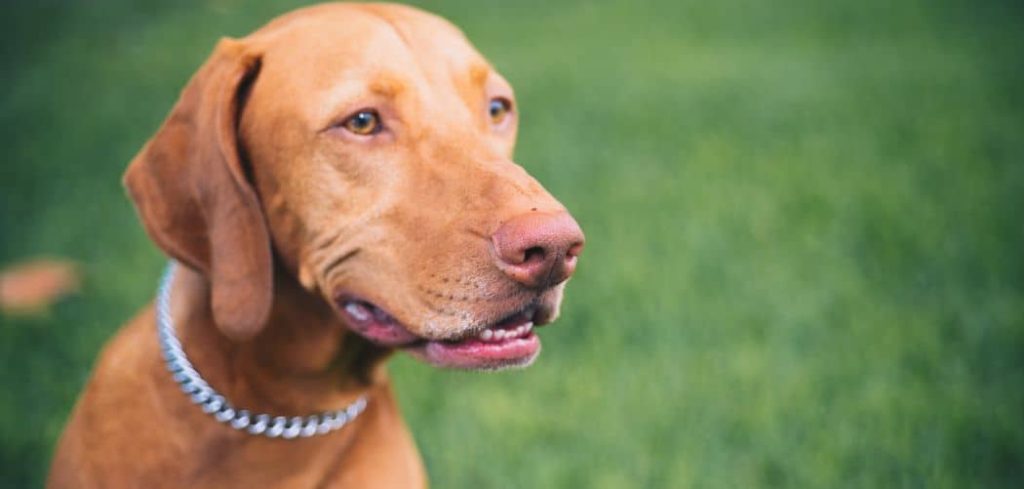If your dog is both panting and breathing rapidly, it may signal much more than excitement or post-exercise recovery. These symptoms can indicate anything from stress to heart problems, pain, or respiratory distress—and should never be ignored, especially when they happen at rest.
We outline the common causes of dog panting and breathing fast, what you can do at home, and when to seek veterinary help.
Table of Contents
Dog Panting and Breathing Fast — Why It Happens
Dogs pant and breathe fast when their body is under stress—whether from heat, fear, pain, lung issues, or cardiovascular problems. While occasional panting is normal, sustained rapid breathing (especially at rest or overnight) can be a red flag for something more serious.

Common Causes of Dog Panting and Breathing Fast
Heat Stress or Overheating
Heat stress is a top cause of excessive panting and fast breathing in dogs. When your dog is too hot, they pant to regulate their body temperature.
If your dog has been outside in warm weather or in a poorly ventilated space, overheating could be the cause.
Look for signs like red gums, excessive drooling, weakness, or staggering.
In severe cases, dogs can suffer from heatstroke, which is a medical emergency.
Always provide fresh water and shade, and avoid midday walks in hot weather.
Pain or Injury
Pain—whether internal or from an injury—can lead to faster breathing and panting as the dog tries to cope with the discomfort.
Conditions like arthritis, abdominal bloating, or internal injuries can prompt these symptoms.
Other signs might include restlessness, whining, limping, or hiding behavior.
Since dogs often mask pain, any unexplained breathing changes should be taken seriously.
Veterinary evaluation and pain management are key to your dog’s recovery.
Anxiety or Panic
Stress or fear can cause hyperventilation in dogs, often paired with panting, pacing, and shaking.
Triggers may include loud noises (thunderstorms, fireworks), separation from their owner, or unfamiliar environments.
Dogs may also tuck their tail, widen their eyes, or seek shelter during these episodes.
Calming aids, routine, and desensitization training can help reduce anxiety-driven symptoms.
If anxiety is chronic, consult your vet for behavior support and treatment options.
Read more: Dog Panting and Shaking at Night (What’s normal—and what’s not?)
Respiratory Disease
Conditions like pneumonia, laryngeal paralysis, or collapsed trachea can compromise airflow and increase breathing effort.
You may hear wheezing, coughing, or labored breathing alongside the fast rate.
Brachycephalic breeds (like Bulldogs and Pugs) are especially prone to airway-related issues.
These conditions require medical intervention and may be life-threatening without treatment.
Heart Disease or Congestive Heart Failure
Cardiac conditions often lead to faster breathing, even when your dog is resting.
Fluid buildup in the lungs makes it difficult for the body to get enough oxygen, resulting in panting and labored breaths.
Look for signs like coughing, bluish gums, fatigue, or reluctance to exercise.
Heart disease can develop gradually and is more common in senior dogs or certain breeds.
Early diagnosis allows for better long-term management with medications and lifestyle adjustments.
Anemia or Low Oxygen Levels
Anemia reduces the oxygen-carrying capacity of your dog’s blood, causing their body to work harder just to circulate oxygen.
Panting and rapid breathing are the body’s way of compensating.
Pale gums, weakness, and lethargy may also be present.
Causes range from internal bleeding to immune disorders, and this condition often requires bloodwork and urgent care.
What to Do If Your Dog Is Panting and Breathing Fast
Move your dog to a cool, quiet area and offer fresh water.
Monitor their breathing rate—normal resting rates are around 15–30 breaths per minute.
Avoid overexertion or any stressful stimulation.
Check for other symptoms like pale gums, coughing, or signs of pain.
If your dog has a known heart or lung condition, follow your vet’s emergency protocol.
Do not give medication without veterinary approval.
When to Call or Visit Your Vet
Seek veterinary care immediately if your dog:
Is breathing fast while resting or sleeping
Has bluish or pale gums
Is lethargic, unresponsive, or refuses food
Is coughing, wheezing, or gagging
Has a bloated abdomen or shows signs of pain
These symptoms can indicate a medical emergency and need professional evaluation.
Read more: Dog Panting and Shivering (What it means)
Key Takeaway
Panting and fast breathing in dogs is not something to brush off, especially if it happens at rest or alongside other troubling signs.
Whether caused by heat, heart disease, respiratory distress, or anxiety, your dog is signaling a need for help.
Act quickly to cool and calm them—and reach out to your vet to uncover the root cause and protect your dog’s well-being.
